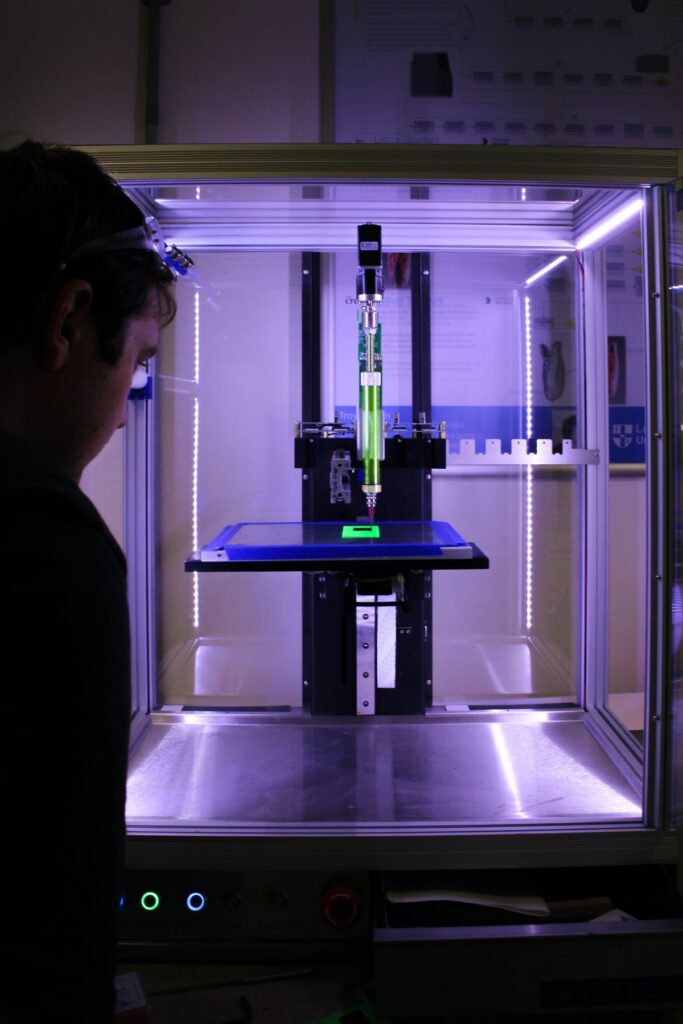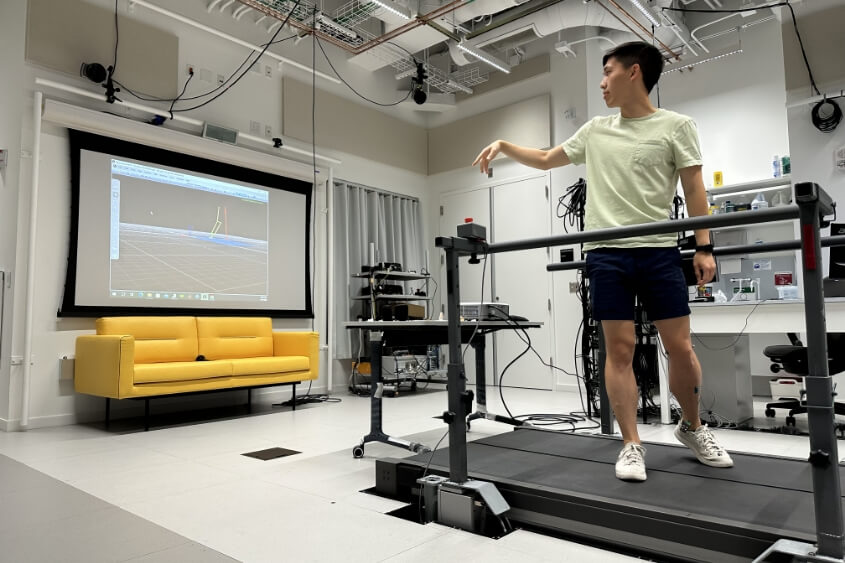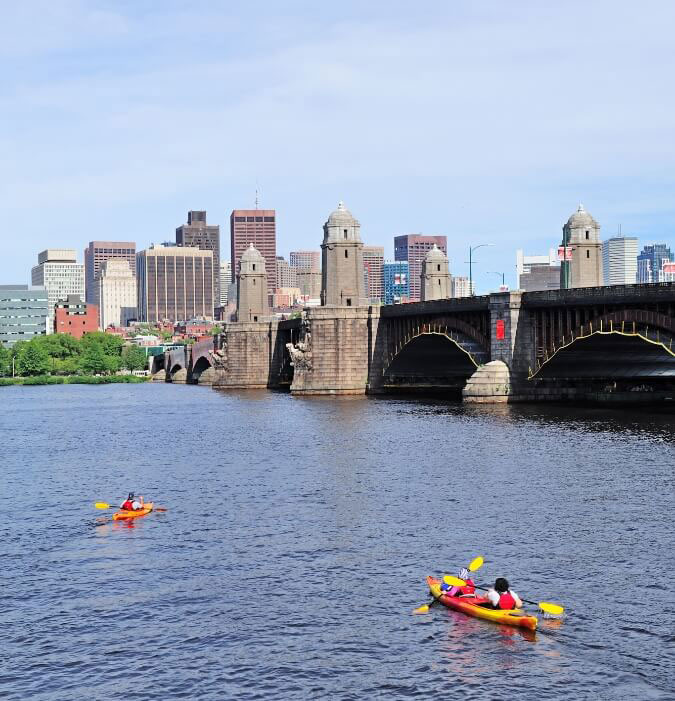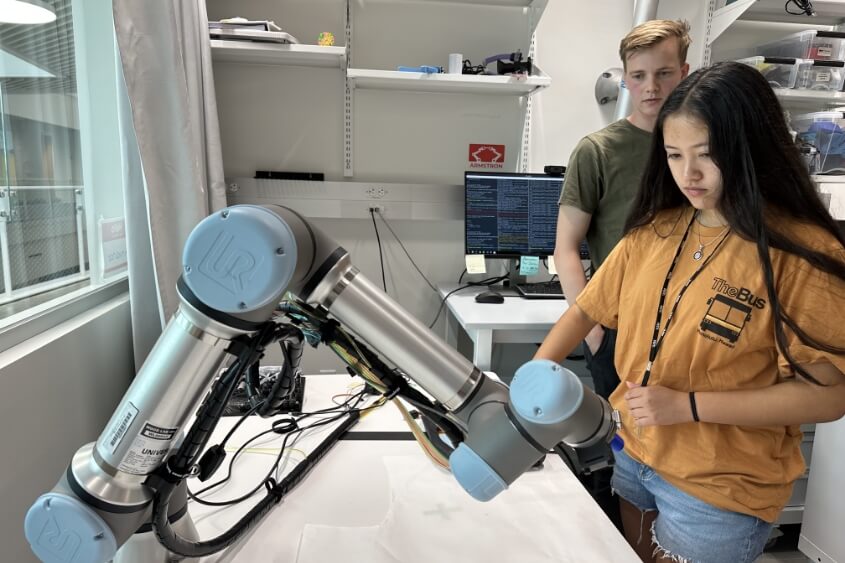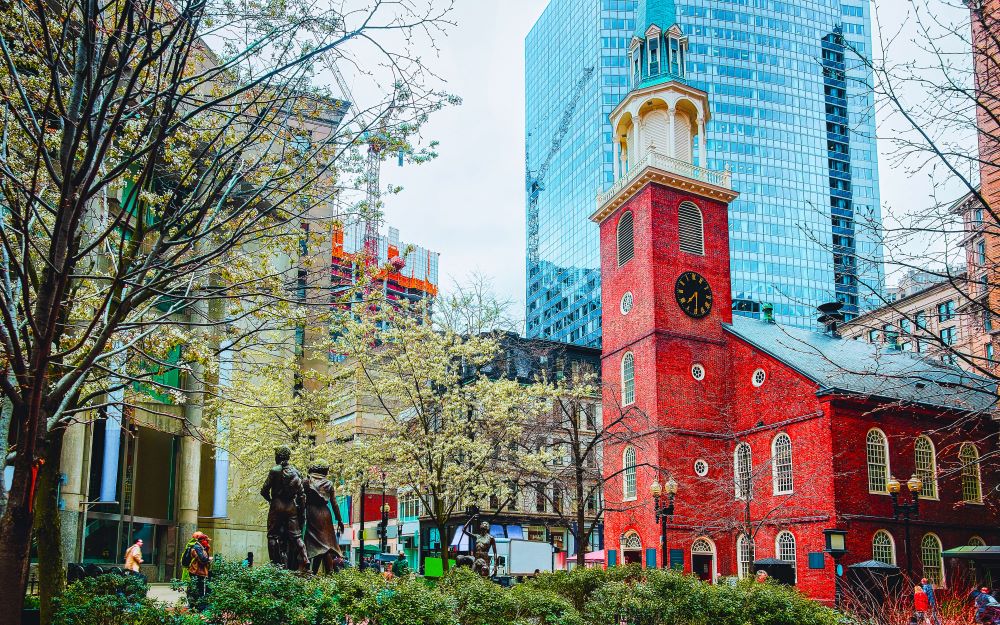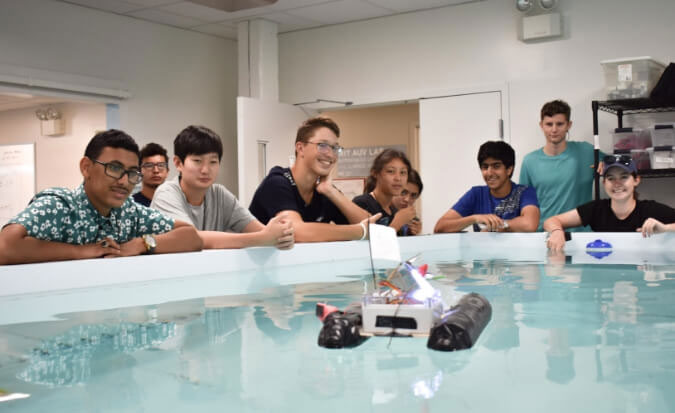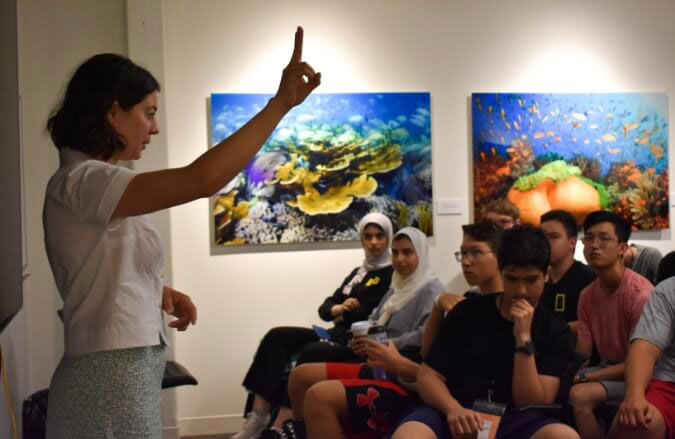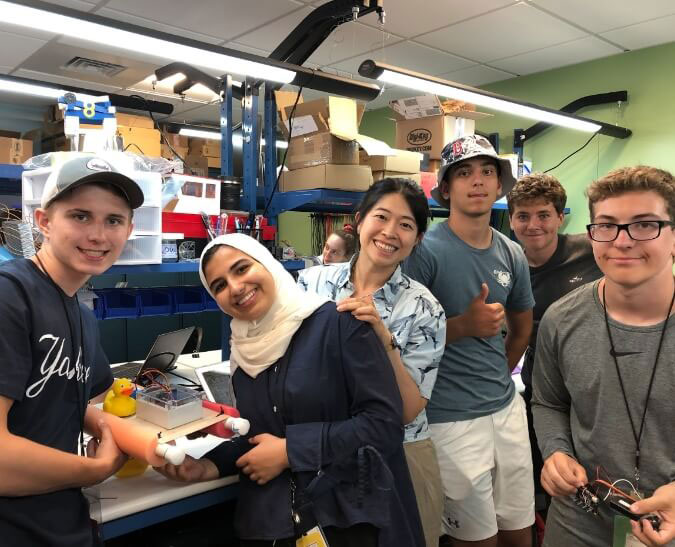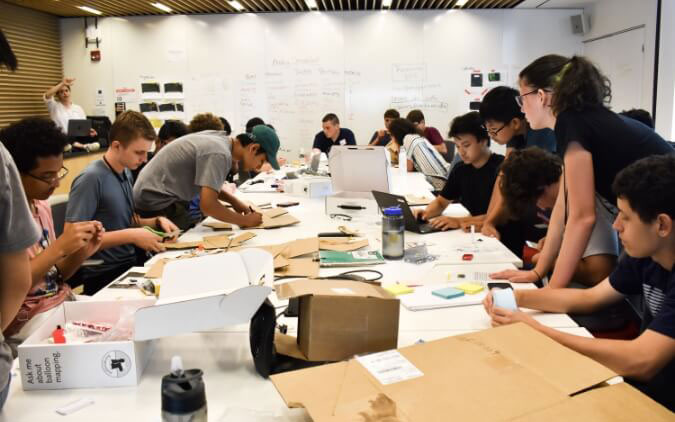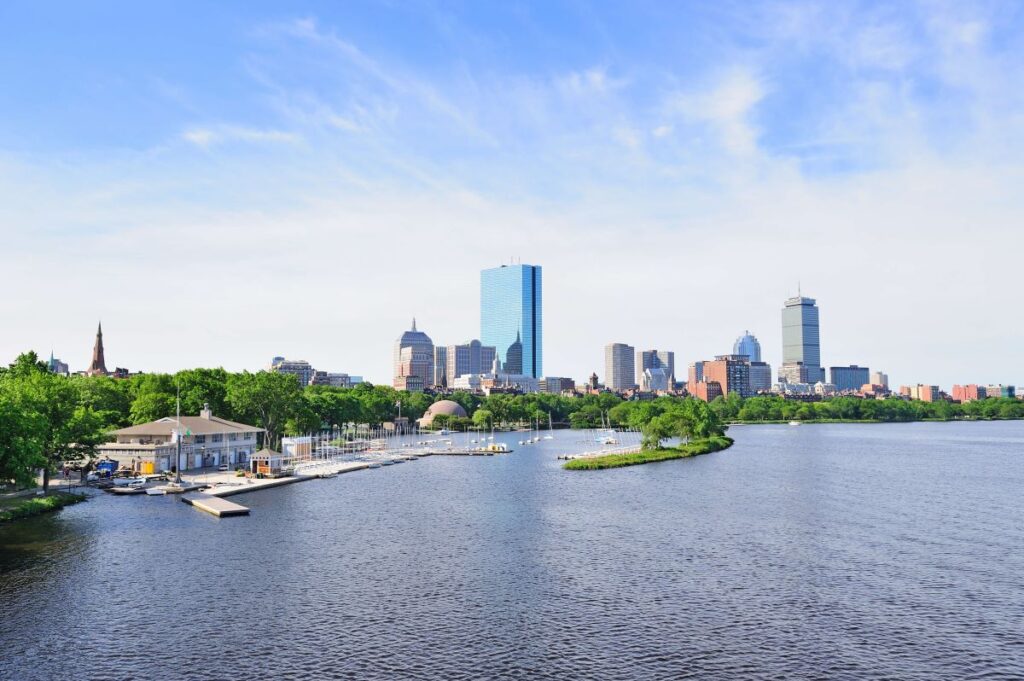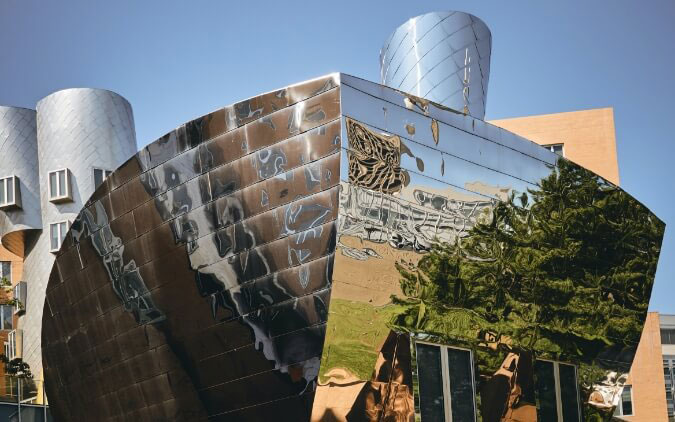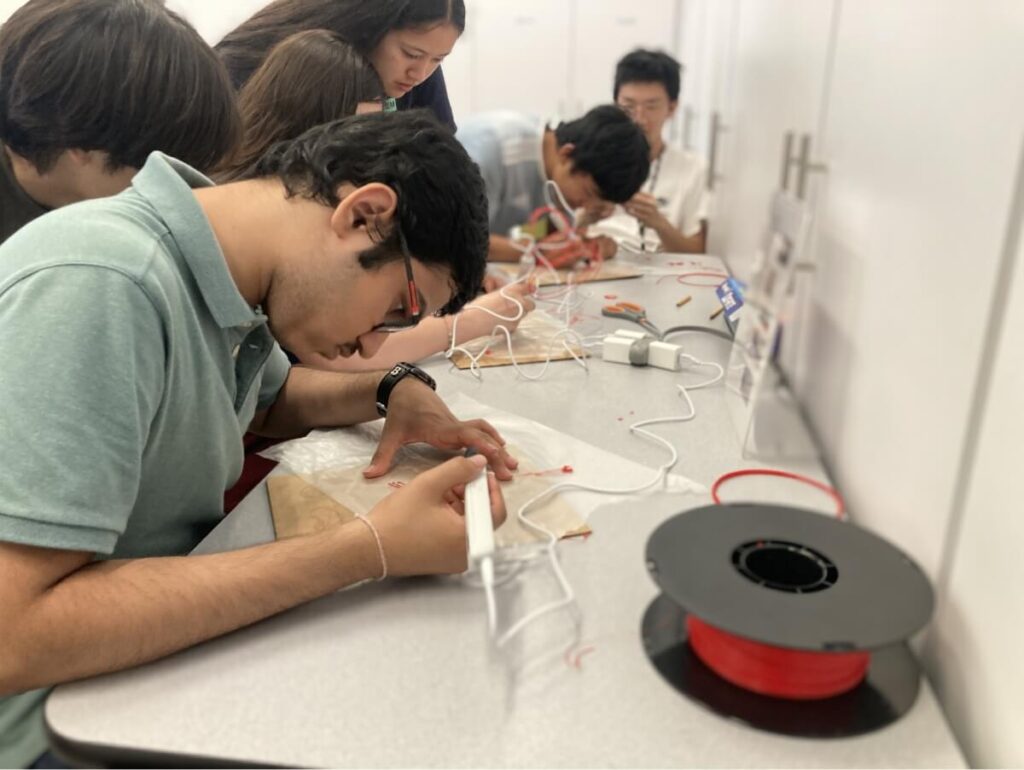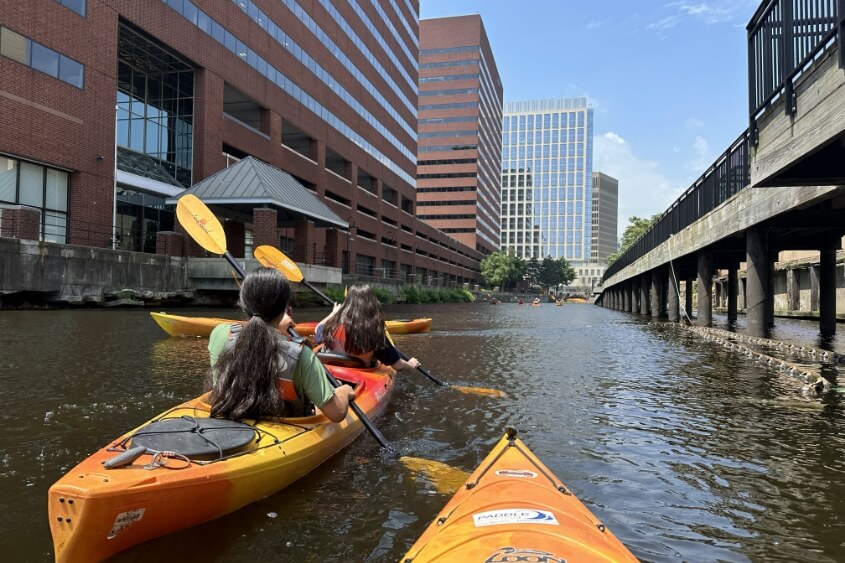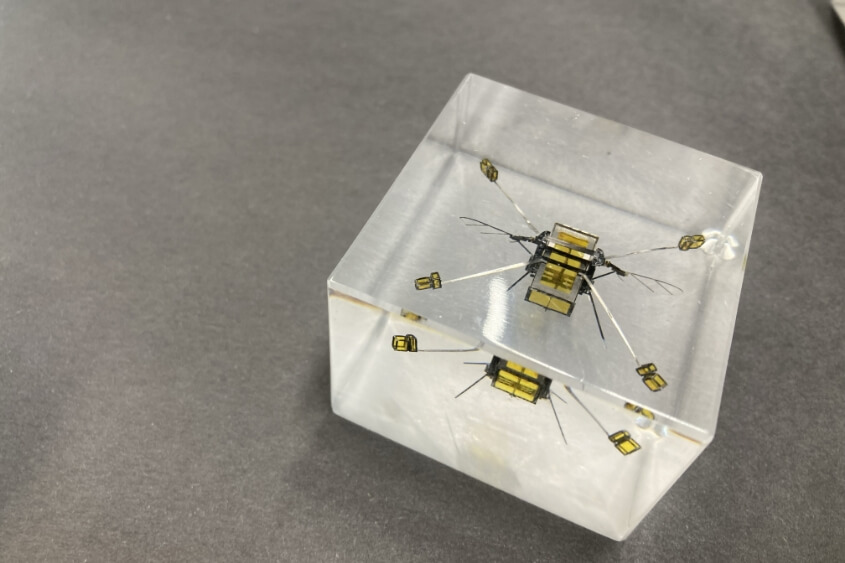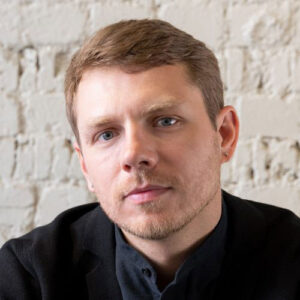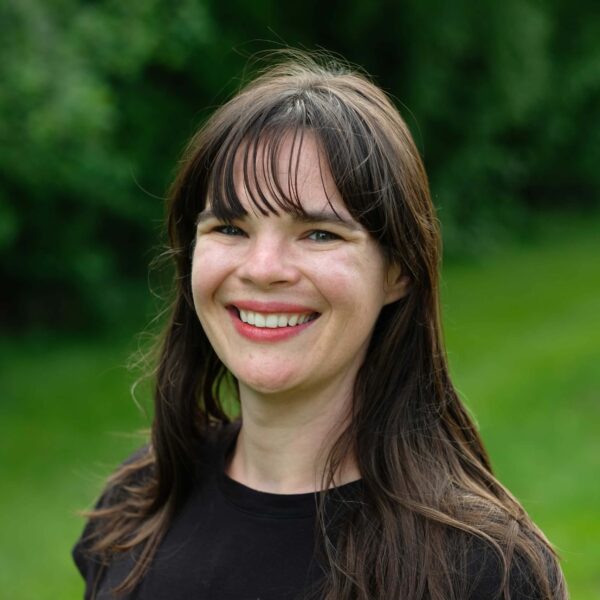MIT Campus
Engineering & Robotics Workshop
This summer, join top experts and researchers on the campus of Massachusetts Institute of Technology (MIT) to examine the many intersections of technology and exploration, artificial intelligence (AI), and robotics. Attend seminars on a range of topics—from remote exploration of space and sea to engineering microscopic robots—and participate in related experiments. Weave your experiences together by creating a capstone project proposal that uses cutting-edge science to help address an important issue in your own community.
Note: Specific activities and workshops depend on the current work of labs and researchers. This description is representative of last year’s experiences and will be updated closer to the summer. Please call with any questions!
- Highlights
• Harness 3D printers to reimagine the future of technology and print your own design
• Collect and analyze big data to assess and problem solve a real-world issue
• Learn about innovative work being done by scientists and storytellers at MIT
Expert
Our 2025 Expert will be announced soon!
Itinerary
This itinerary represents our best projection of the group’s schedule. However, we may implement changes designed to improve the quality of the program.
Meet your fellow high school student travelers in Boston, Massachusetts, either at the MIT campus or Boston Logan International Airport. To learn more about how we organize travel, click here.
Arrive at the MIT campus, join your group for an orientation and campus tour, and get acclimated to university life in Cambridge. Each day features a hands-on workshop or field study followed by a discussion-based seminar or group meeting to further examine and apply what you’ve learned. Program leaders guide the group through each activity and facilitate workshops and discussions with program experts. State-of-the-art research labs and applied technology centers in the local area serve as your classrooms as you explore scientific solutions to some of the most critical and compelling issues facing the modern world.
Visit the Self-Assembly lab at MIT and learn about how researchers are using wave energy and underwater structures to promote sand accumulation as part of a project to rebuild coastlines and "build" islands. Work with tanks designed to mimic the ocean experience, manipulating water and sand to see a small scale of this action. Next, visit the newly revamped Wright Brothers Wind Tunnel and learn about researchers' thoughts on how to build better and more efficient planes. In the late afternoon head out to explore some of Boston's "green roofs" and learn about these and other innovative and accessible urban farming solutions.
Join National Geographic Explorer Skylar Tibbits at his lab, where he’ll provide an overview of how 3D printing is being used to improve our lives—from creating more comfortable human prosthetics to building flexible structures that adapt to changing environmental conditions.
Take breaks from seminars to explore the vibrant cities of Cambridge and Boston. Peruse the shelves at bookstores in Harvard Square, kayak along the Charles River, meet culinary entrepreneurs at the Boston Public Market, or visit one of the area’s world-famous museums. Wander the cobbled streets winding through some of our country’s oldest neighborhoods, and delve into Revolutionary War history during a walk along the Freedom Trail. Each evening, gather on campus for a group activity, such as a presentation by one of our program experts, a panel discussion with current MIT students and researchers, a film screening, or a concert.
Engage in a friendly multi-day hack-a-thon competition directed by your expert, a specialist in finding applications for new technologies in the service of environmental conservation and protection. Finish the competition with your own AI-powered prototype and design in hand. Design and hone a final project that focuses on an issue important to you and your home community.
Depart from the MIT campus or Boston Logan International Airport. To learn more about how we organize travel, click here.
Itinerary
This itinerary represents our best projection of the group’s schedule. However, we may implement changes designed to improve the quality of the program.
Meet your fellow high school student travelers in Boston, Massachusetts, either at the MIT campus or Boston Logan International Airport. To learn more about how we organize travel, click here.
Arrive at the MIT campus, join your group for an orientation and campus tour, and get acclimated to university life in Cambridge. Each day features a hands-on workshop or field study followed by a discussion-based seminar or group meeting to further examine and apply what you’ve learned. Program leaders guide the group through each activity and facilitate workshops and discussions with program experts. State-of-the-art research labs and applied technology centers in the local area serve as your classrooms as you explore scientific solutions to some of the most critical and compelling issues facing the modern world.
Visit the Self-Assembly lab at MIT and learn about how researchers are using wave energy and underwater structures to promote sand accumulation as part of a project to rebuild coastlines and "build" islands. Work with tanks designed to mimic the ocean experience, manipulating water and sand to see a small scale of this action. Next, visit the newly revamped Wright Brothers Wind Tunnel and learn about researchers' thoughts on how to build better and more efficient planes. In the late afternoon head out to explore some of Boston's "green roofs" and learn about these and other innovative and accessible urban farming solutions.
Join National Geographic Explorer Skylar Tibbits at his lab, where he’ll provide an overview of how 3D printing is being used to improve our lives—from creating more comfortable human prosthetics to building flexible structures that adapt to changing environmental conditions.
Take breaks from seminars to explore the vibrant cities of Cambridge and Boston. Peruse the shelves at bookstores in Harvard Square, kayak along the Charles River, meet culinary entrepreneurs at the Boston Public Market, or visit one of the area’s world-famous museums. Wander the cobbled streets winding through some of our country’s oldest neighborhoods, and delve into Revolutionary War history during a walk along the Freedom Trail. Each evening, gather on campus for a group activity, such as a presentation by one of our program experts, a panel discussion with current MIT students and researchers, a film screening, or a concert.
Engage in a friendly multi-day hack-a-thon competition directed by your expert, a specialist in finding applications for new technologies in the service of environmental conservation and protection. Finish the competition with your own AI-powered prototype and design in hand. Design and hone a final project that focuses on an issue important to you and your home community.
Depart from the MIT campus or Boston Logan International Airport. To learn more about how we organize travel, click here.
Leaders
Meet some of our featured leaders. Please note that these may not be your leaders for the program.

Leaders
Meet some of our featured leaders. Please note that these may not be your leaders for the program.

The Massachusetts Institute of Technology (MIT) is in the heart of Cambridge, a vibrant university town that has an array of restaurants, shops, and cultural events. Located just across the Charles River from Boston, the campus offers easy access to world-class museums and some of the country’s most important historic sites. From our base at the MIT dorms, the group utilizes space at the university student center to work on collaborative projects, and visits nearby research centers, Harvard University, and labs used by MIT researchers.
English is the official language of the U.S.
Summer in Boston is typically warm and clear, with daytime temperatures in the 70’s and 80’s°F/22-39°C.
Boston's food scene is a mix of traditional New England fare and diverse international cuisines, reflecting the city's rich cultural heritage. From iconic seafood dishes like clam chowder and lobster rolls to trendy fusion restaurants, Boston offers a culinary adventure for every palate.
The Massachusetts Institute of Technology (MIT) is in the heart of Cambridge, a vibrant university town that has an array of restaurants, shops, and cultural events. Located just across the Charles River from Boston, the campus offers easy access to world-class museums and some of the country’s most important historic sites. From our base at the MIT dorms, the group utilizes space at the university student center to work on collaborative projects, and visits nearby research centers, Harvard University, and labs used by MIT researchers.
English is the official language of the U.S.
Summer in Boston is typically warm and clear, with daytime temperatures in the 70’s and 80’s°F/22-39°C.
Boston's food scene is a mix of traditional New England fare and diverse international cuisines, reflecting the city's rich cultural heritage. From iconic seafood dishes like clam chowder and lobster rolls to trendy fusion restaurants, Boston offers a culinary adventure for every palate.
What to Expect
Review specific program expectations here. For more general information:
Engineering the Future
Get a firsthand look at new technologies that are being used to address challenges facing the modern world. Experiment in robotics and engineering activities, and understand the future applications of the latest innovations. Then, develop a proposal for a project that you would implement in your home community, and pitch your idea to your peers, your program expert, and trip leaders.
Technology for Remote Exploration
Investigate how advances in technology are enabling scientists to probe areas previously considered “too remote” to access.
Innovations in Robotics & Artificial Intelligence
Hear how engineers are developing a new class of robots and discuss the ethical questions surrounding the future of artificial intelligence and machine learning.
Weave your experiences together to design and hone a final project that uses technology to address an important issues in your home community.
This is an active summer travel program. You do not need to be at peak fitness to participate, but it is important that you are interested in trying all activities.
We stay in a dormitory on campus with single or double rooms and shared bathrooms. We will host seminars and expert talks in classrooms, labs, or conference rooms primarily at the university.
We eat breakfast and dinner at our accommodation. Lunches are a combination of the campus dining hall and out on the town.
What to Expect
Review specific program expectations here. For more general information:
Engineering the Future
Get a firsthand look at new technologies that are being used to address challenges facing the modern world. Experiment in robotics and engineering activities, and understand the future applications of the latest innovations. Then, develop a proposal for a project that you would implement in your home community, and pitch your idea to your peers, your program expert, and trip leaders.
Technology for Remote Exploration
Investigate how advances in technology are enabling scientists to probe areas previously considered “too remote” to access.
Innovations in Robotics & Artificial Intelligence
Hear how engineers are developing a new class of robots and discuss the ethical questions surrounding the future of artificial intelligence and machine learning.
Weave your experiences together to design and hone a final project that uses technology to address an important issues in your home community.
This is an active summer travel program. You do not need to be at peak fitness to participate, but it is important that you are interested in trying all activities.
We stay in a dormitory on campus with single or double rooms and shared bathrooms. We will host seminars and expert talks in classrooms, labs, or conference rooms primarily at the university.
We eat breakfast and dinner at our accommodation. Lunches are a combination of the campus dining hall and out on the town.
A Day in the Life: MIT Campus
- Morning
- Afternoon
- Evening
A Day in the Life:
MIT Campus
- Morning
- Afternoon
- Evening
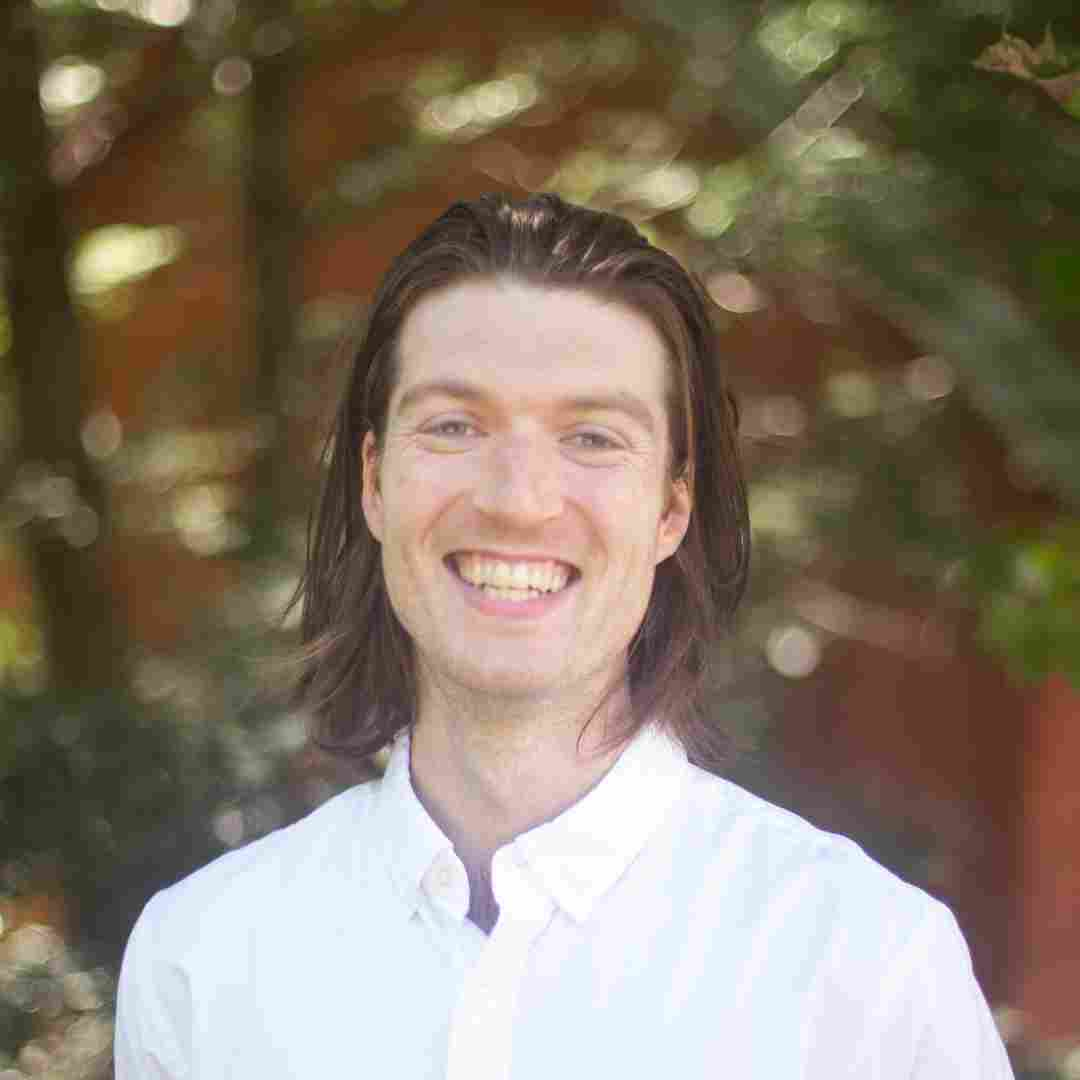
Program Directed by
If you have questions or would like to talk further about this program, please get in touch!




